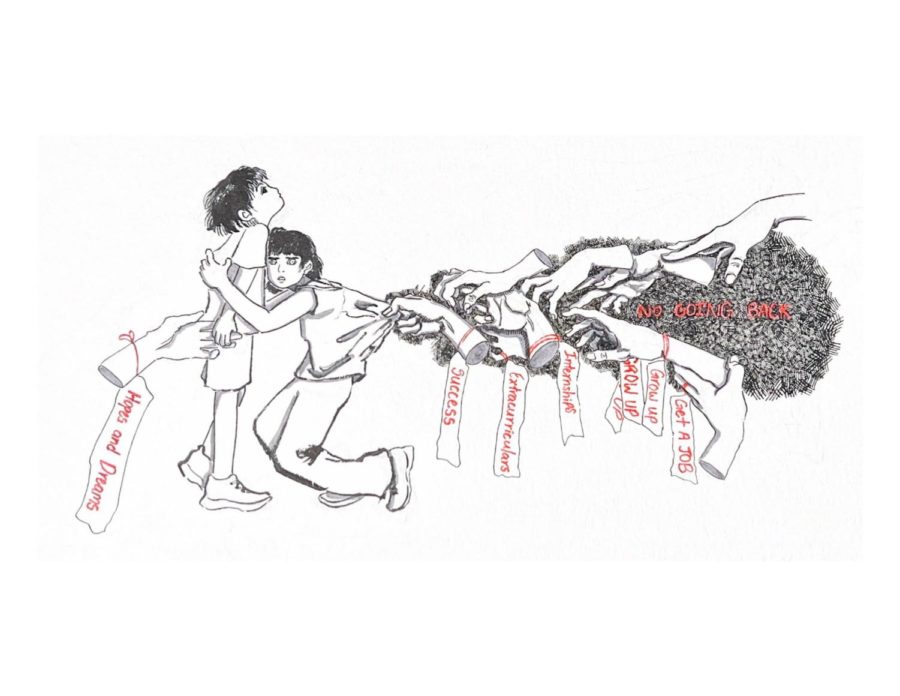A well-known philosophy joke goes something like this: For the final exam, a philosophy professor puts a chair on a table and writes on the board, “Prove that this chair does not exist.” Though most students spend the full two-hour period writing out multi-page treatises, one student merely writes, “What chair?” His essay is awarded the only A in the class.
His answer may be all well and good in the joke, but that kind of flippancy tends not to work out as well in other contexts. Last week’s presidential debate might have been most notable in pop culture for launching the phrase “binders full of women,” but I wasn’t satisfied with the depth of the discussion that yielded it—the one about pay disparity between men and women.
As you may know, a woman in the audience asked President Obama and Mitt Romney what plans they had to close the wage gap. Obama cited the passage of the Lilly Ledbetter Fair Pay Act (which loosened time restrictions on filing lawsuits over pay discrimination), and Romney went off on a tangent about how he would improve the economy so that employers would be so “anxious to get good workers” that they’d hire women. All snark about the responses aside, I was pleased to hear that both candidates seemed to accept the premise that the wage gap is a problem.
Alas, I cannot say the same about all of the media coverage that followed. For the National Review Online, Diana Furchtgott-Roth wrote, “The myth of the wage gap is pervasive, but demonstrably false. Too bad neither presidential candidate had the guts to say so.” On Fox News, Doug McKelway introduced a segment on the debate question about the wage gap by calling it a “question that moderator Candy Crowley permitted,” with the last word disdainfully drawn out.
Silly women, thinking they can ask legitimate questions about wage disparities and whatnot. Whenever the issue of the pay gap gets brought up, it’s always easy to find pundits and journalists who think they can simply end the debate by asking the equivalent of “what chair?”—that is, “what wage gap?” But, unfortunately, you can’t make a problem go away by declaring it non-existent.
To be fair, important factors such as occupation and level of qualifications are not accounted for when people cite the Bureau of Labor Statistics figure that the median full-time, year-round female worker’s salary was 81 percent of the corresponding salary for a male worker in 2010. Nevertheless, after controlling for such differences in male and female workers, a 2009 Department of Labor report concluded that there was an “adjusted gender wage gap that is between 4.8 and 7.1 percent.” Though being a girl means I get confused when I see too many numbers, I am fairly certain that the findings indicate that women aren’t simply suffering from a mass delusion that they’re being paid less than men.
You may be thinking to yourself, “Well, I can go to a search engine and find studies that disagree with what you said. What’s your point?” Yes, there may very well be reasons other than bias that account for the adjusted wage gap. But calling the wage gap a “myth” is unnecessarily dismissive. It immediately ends the possibility of having a reasonable dialogue about whether the government has any appropriate role to play in regulating pay discrimination. It’s insulting because it seems to assume that women haven’t already considered factors such as their tendency to enter lower-paying fields or to spend more time managing their households.
Zeus is a myth. Thor is a myth. The obstacles that women face in being treated equally in the workplace are not myths. Chances are that if you can think of five alternate explanations off the top of your head that may explain the wage gap, then other people can too. And they’ve found those explanations to be insufficient. The disparity in wages between men and women is still an actively studied topic, presumably because there are a lot of questions that social scientists still want to answer.
I once had a classmate here patronizingly “explain” to me that the wage gap would be erased if women simply told their employers that they would like a higher salary. Along similar lines, women are often told that they could close the wage gap if only they were more willing to advocate for themselves in the workplace, speak out during meetings, self-promote aggressively, etc. Yet, when women do collectively advocate for themselves, as in the case of workplace inequality, they’re told that they are complaining about a problem that does not exist. At the very least, I think women are getting mixed messages about how assertive they actually ought to be.
Jane Huang is a third-year in the College.








